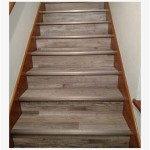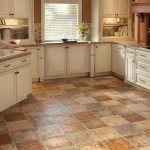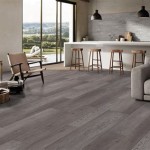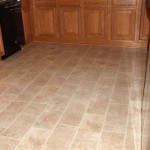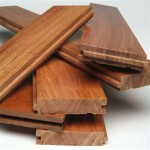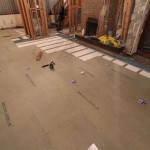The Difference Between Engineered Hardwood and Solid Hardwood Flooring
Choosing the right flooring for your home can be a daunting task, with numerous options available. Hardwood, known for its timeless elegance and durability, comes in two primary forms: solid hardwood and engineered hardwood. While both offer the beauty of natural wood, they differ significantly in their construction, durability, and installation methods. Understanding these differences is crucial for making an informed decision based on your specific needs and preferences.
Construction and Composition
Solid hardwood flooring, as the name suggests, is made from a single piece of solid wood. It is typically 3/4 inch thick and can be refinished multiple times throughout its lifespan. This makes it an excellent choice for homeowners seeking a floor that can be renewed and updated over the years. On the other hand, engineered hardwood is composed of multiple layers. It features a top layer of real wood veneer, which provides the aesthetic appeal, bonded to a core of plywood or other wood composites. This layered structure adds to its stability and makes it less susceptible to warping and expansion.
Durability and Stability
Solid hardwood is known for its exceptional durability and longevity. However, it is also susceptible to changes in humidity and temperature, which can lead to warping, shrinking, and expansion. Engineered hardwood, due to its multi-layered construction, is more resistant to these fluctuations. The plywood core provides stability, making it well-suited for areas with varying humidity levels or climates. Engineered hardwood is often preferred in basements or above-ground floors where moisture and temperature changes are more common.
Installation and Maintenance
The installation of solid hardwood typically requires a professional, as it involves nailing or gluing the planks to the subfloor. This process can be more labor-intensive and costly compared to engineered hardwood. Engineered hardwood, on the other hand, offers greater installation flexibility. It can be nailed, glued, or even floated over a subfloor using a click-lock system, making it a more DIY-friendly option. Both types of hardwood require regular maintenance, including sweeping, vacuuming, and occasional mopping with a wood-safe cleaner. Refinishing is typically required for solid hardwood to restore its finish, while engineered hardwood can be refinished a few times, depending on the thickness of the veneer layer.
Cost Considerations
Solid hardwood flooring is generally more expensive than engineered hardwood. This price difference is attributed to the use of a single piece of solid wood and the higher labor costs associated with its installation. Engineered hardwood offers a more affordable option, particularly for larger areas, while still providing the beauty and durability of real wood. However, it's important to note that higher-grade engineered hardwood with thicker veneer layers can come close to the cost of solid hardwood.
Environmental Considerations
Both solid and engineered hardwood can be environmentally friendly options, depending on the source of the wood and the manufacturing processes. Choosing sustainably harvested wood from certified forests is essential for minimizing environmental impact. Engineered hardwood, due to its layered construction, may utilize smaller pieces of wood, potentially reducing overall waste compared to solid hardwood. However, it's crucial to consider the manufacturing process and the materials used in the core layers for a more complete environmental assessment.
Choosing the Right Option
The choice between solid and engineered hardwood ultimately depends on individual needs and preferences. Solid hardwood is an excellent choice for homeowners seeking a traditional, long-lasting floor that can be refinished multiple times. It is suitable for areas with consistent humidity and temperature levels. Engineered hardwood offers greater stability, ease of installation, and affordability, making it a practical option for various environments. It is particularly well-suited for areas with varying humidity levels or where DIY installation is preferred. By carefully considering the factors discussed above, homeowners can make an informed decision that best suits their specific needs and preferences.

Solid Vs Engineered Hardwood Which Is Better

Engineered Wood Vs Solid Which Is Better Flooring

Engineered Vs Solid Wood Flooring Main Differences Esb

The Differences Between Solid And Engineered Hardwood Flooring Garrison Collection

5 Differences Between Engineered Wood And Laminate Flooring

Solid Vs Engineered Quality Hardwoods Superior Design Palo Duro

Blog Engineered Vs Hardwood San Marcos Tx Quality Floors More

Engineered Hardwood Vs Laminate Flooring

Engineered Wood Flooring Vs Solid Forté

Solid Vs Engineered Hardwood Which Is Better
See Also
